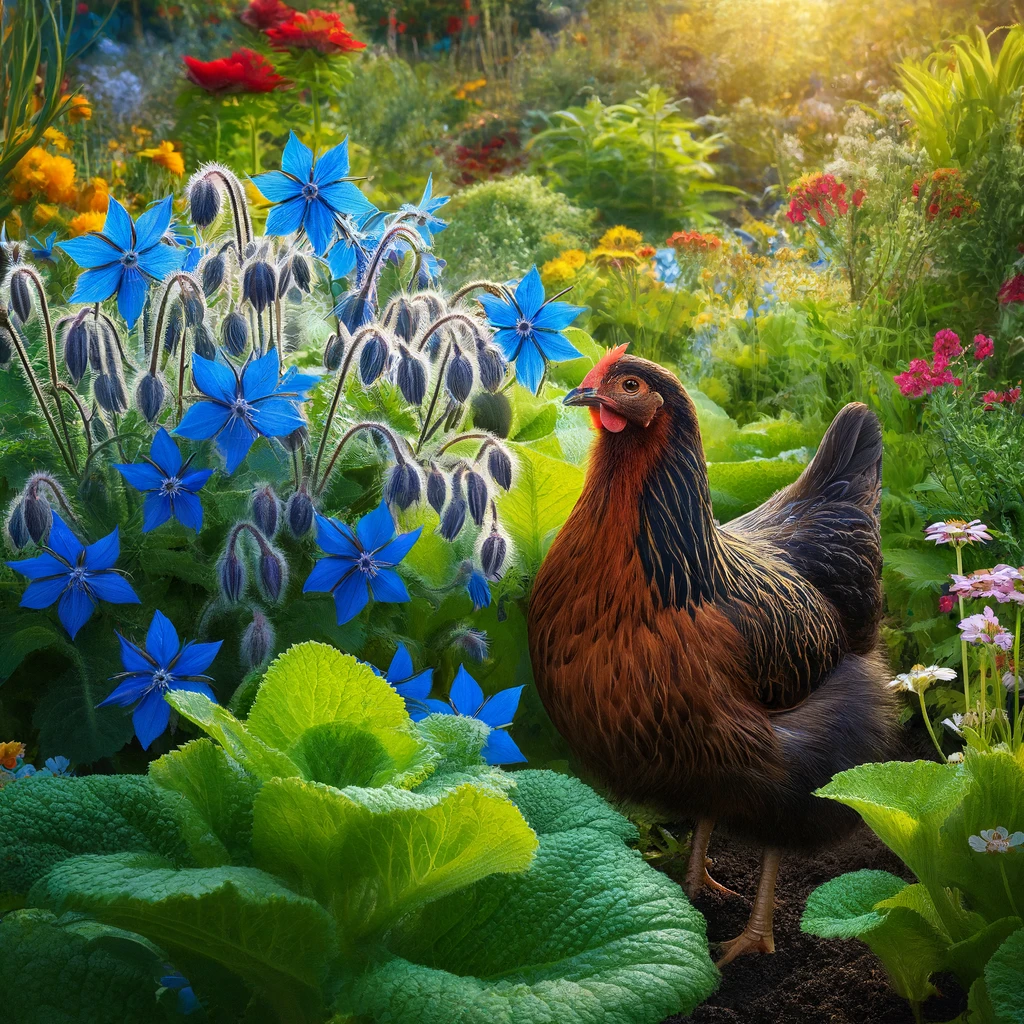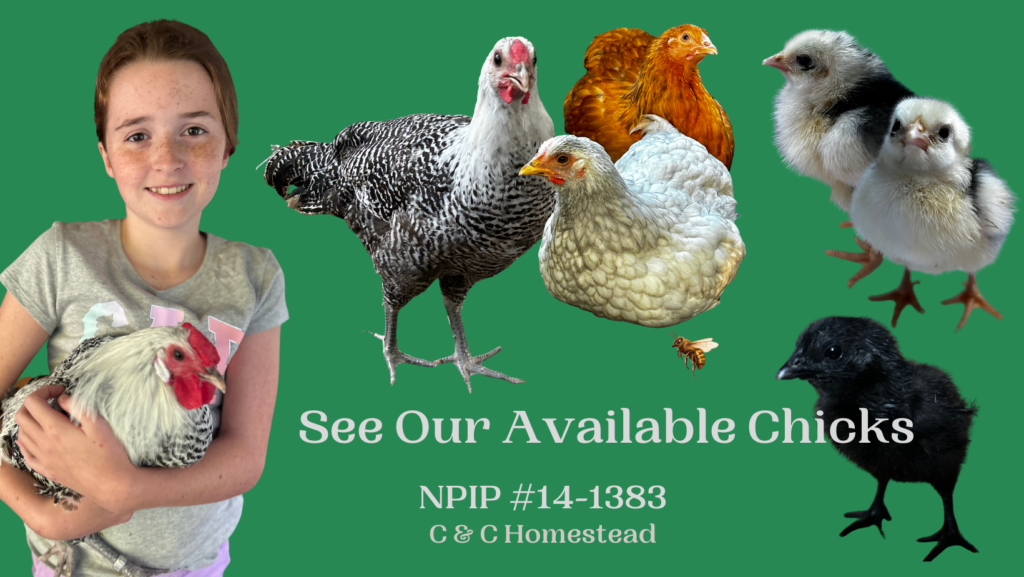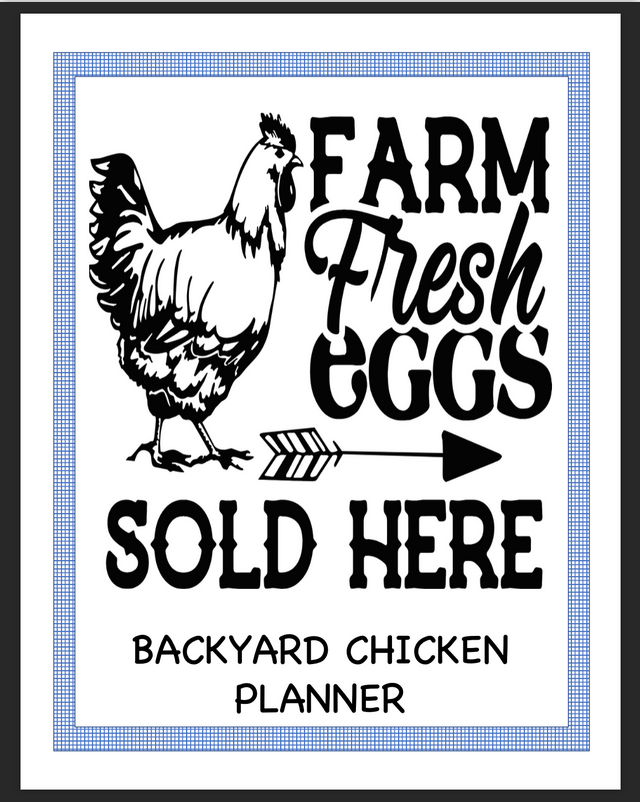Balancing Corporate & Homesteading Lifestyles
Borage: A Healthy Herb For Your Chickens

Borage, also known as starflower, is a versatile and beneficial herb that can enhance the health and well-being of your chickens. Its beautiful blue flowers and nutrient-rich leaves make it a valuable addition to your homestead garden.
Here’s an in-depth look at the benefits of borage for chickens, how to grow it, and ways to incorporate it into your flock’s routine.
Benefits of Borage for Chickens
- Nutritional Value:
- Rich in Vitamins and Minerals: Borage leaves are packed with vitamins A and C, as well as essential minerals like calcium and potassium. These nutrients are crucial for maintaining healthy bones, feathers, and overall health.
- Gamma-Linolenic Acid (GLA): Borage seeds contain high levels of GLA, an omega-6 fatty acid that has anti-inflammatory properties, which can benefit chickens, particularly those with joint issues or inflammation.
- Immune System Support:
- Antioxidant Properties: The antioxidants in borage help boost the immune system, protecting chickens from illnesses and infections.
- Anti-Inflammatory Effects: The GLA in borage has anti-inflammatory effects that can help reduce inflammation in chickens, promoting overall health and comfort.
- Digestive Health:
- Fiber Content: Borage leaves contain fiber, which aids in digestion and helps prevent digestive issues in chickens.
- Natural Diuretic: Borage acts as a natural diuretic, helping to detoxify the body and support kidney function.
- Calming Effects:
- Stress Reduction: Borage has mild sedative properties, which can help reduce stress and anxiety in chickens, especially during times of change or when introducing new flock members.
How to Grow Borage
- Planting:
- Soil: Borage grows well in well-drained soil rich in organic matter. It is adaptable and can thrive in various soil types but prefers a slightly acidic to neutral pH.
- Location: Choose a sunny spot for planting borage, as it thrives in full sun but can tolerate partial shade.
- Seeds: Sow borage seeds directly in the garden after the last frost. Plant the seeds about 1/4 inch deep and 12 inches apart.
- Care:
- Watering: Keep the soil consistently moist, especially during the germination period. Once established, borage is relatively drought-tolerant but benefits from regular watering.
- Fertilization: Borage typically does not require heavy fertilization. A light application of compost or balanced organic fertilizer can support growth.
- Pests and Diseases: Borage is generally pest-resistant but can attract pollinators like bees, which are beneficial for your garden.
- Harvesting:
- Leaves: Harvest young leaves for the best flavor and nutritional value. Pick them as needed throughout the growing season.
- Flowers: Harvest flowers when they are fully open. They can be used fresh or dried.
Incorporating Borage into Your Chickens’ Diet
- Fresh Leaves and Flowers:
- Treats: Offer fresh borage leaves and flowers as a nutritious treat. Scatter them around the run to encourage foraging behavior.
- Chop and Mix: Chop the leaves and mix them into their regular feed to ensure they consume the beneficial nutrients.
- Dried Borage:
- Nesting Boxes: Add dried borage leaves and flowers to nesting boxes. The mild sedative properties can help keep hens calm while laying.
- Herbal Mixes: Create a dried herb mix with borage and other beneficial herbs like lavender, mint, and chamomile to sprinkle in the coop and run.
- Herbal Infusions:
- Drinking Water: Make a mild herbal tea using borage leaves and add it to their drinking water. This can provide additional nutrients and support hydration, especially in hot weather.
Fun Fact
Did you know that borage is sometimes called the "bee plant" because it attracts bees with its bright blue flowers? This makes it an excellent companion plant for your garden, benefiting not only your chickens but also supporting pollinators.
By incorporating borage into your chickens' diet and environment, you can enhance their health, support their immune system, and create a more enriching and natural habitat. Whether used fresh or dried, borage is a wonderful addition to any homesteader's toolkit for maintaining a happy and healthy flock.
Want to know more about herbs for your chickens? Sign up for our newsletter and get an herb profile delivered to your inbox weekly.



